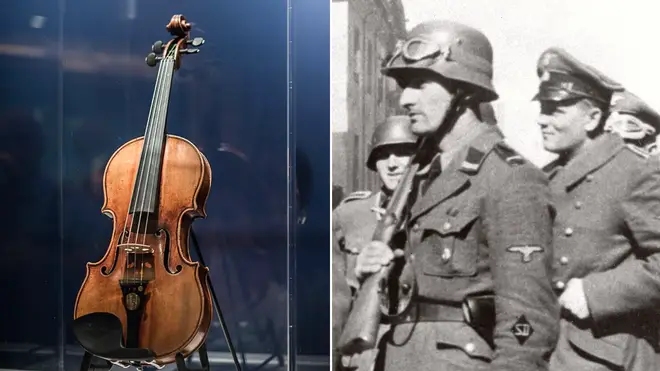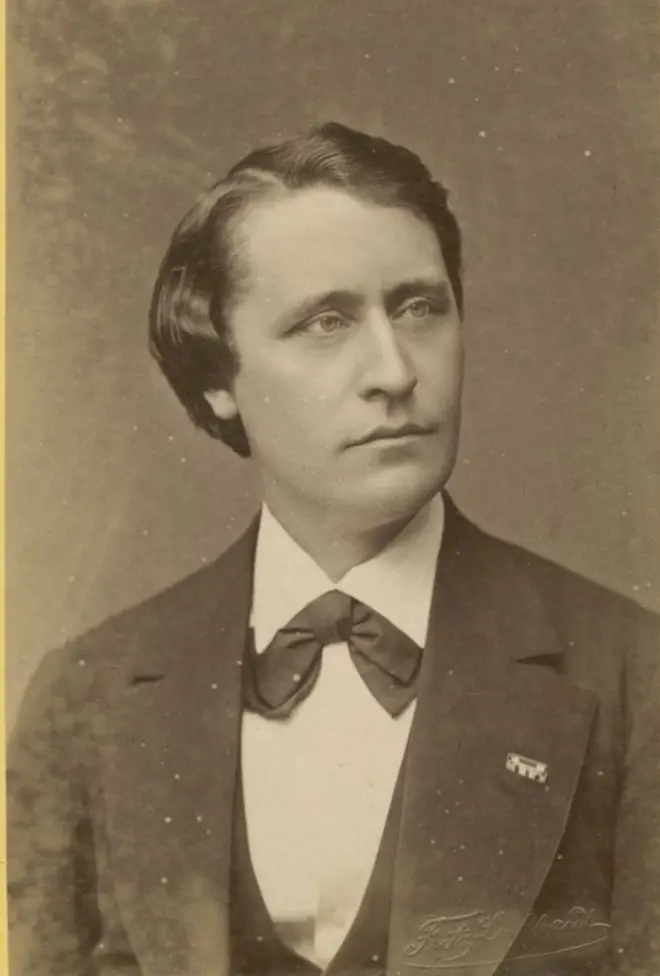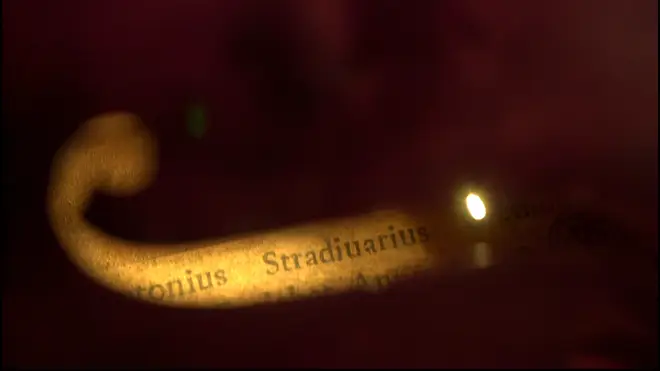Long-lost Stradivarius violin stolen by Nazis during Second World War found in France
3 November 2022, 16:22 | Updated: 9 November 2022, 16:34

After 78 years, the famed ‘Lauterbach Stradivarius’ has perhaps been found in France after being stolen from a Polish museum in 1944.
Listen to this article
The Stradivarius violin is one of the most recognisable instrument-maker names in the world of classical music, and for good reason.
It is believed that around just 650 Stradivarius violins remain in the world, since these fine instruments were built in the workshop of the Italian family Stradivari during the 17th and 18th centuries.
The instruments are famed above all else for their sonic qualities, which is reflected in their high price points for those lucky enough to play and own these historic strings.
However, due to the high price point, this means there have been numerous cases across the centuries where these expensive string instruments have disappeared into the hands of thieves.
One such example is a violin known as the ‘Lauterbach Stradivarius’ which was looted by Nazi occupiers in Poland from the National Museum in Warsaw in 1944.
But 78 years later, there is a chance this long-lost, looted instrument has now been found.
Read more: Stolen €250,000 Gagliano violin, sold by thief for just €200, recovered by police 3 years later

Violinist Ray Chen compares a $69 violin with a $10m Stradivarius

An unnamed owner has come forward with an instrument that matches the Lauterbach Stradivarius.
To legitimise the history of the instrument, the owner approached the French organisation, Musique et Spoliations, which traces “looted instruments and musical material”, particularly those that went missing during the Second World War.
According to the cover story on the French daily newspaper, Le Parisien, experts have examined the instrument, confirming the violin matches the description of the missing Stradivarius.
Musique et Spoliations was founded in 2017 by historian, Pascale Bernhein and lawyer, Corinne Hershkovitch. Both specialise in the restitution of stolen works and are working to trace the rightful owner of the historic violin.
Read more: This Stradivarius violin was stolen 40 years ago. Now, it’s been revived for the first time
The history of the Lauterbach Stradivarius
This particular violin is said to have been made by Antonio Stradivari, arguably the most famous of the Italian instrument-making family, in 1719.
The name associated with this Stradivarius comes from the German violin virtuoso, Johann Christoph Lauterbach, who was the instrument’s owner during the 19th century.
The violin had a handful of owners over the course of 200 years, but eventually found its way to the Warsaw museum in 1939 when its last pre-Second World War owner, Henryk Grohman, died.
It was reportedly stolen by Nazi looters when they came across the violin, along with other valuable musical instruments, in a hidden display case in the museum’s chapel just five years later.

The instruments had been stored here by the chief conservator of the Warsaw museum, Bohdan Marconi. Marconi later told Polish government officials that he had hidden the valuable instruments at the start of the invasion of Poland in 1939.
The instruments, including the Stradivarius, were sealed in a double mahogany museum display-case behind a wall in a church hall, where the violin was later stolen from.
However, the violin was possibly seen again following its snatching, four years later in Heinrichsthal, Germany. US military records confirm that a violin matching the Stradivarius’ description was found in 1948 by American officer, Stefan P. Munsing in the home of former SS member, Theodor Blank.
The violin was reportedly taken into American custody, and is detailed in records as ‘the famous violin’. The records suggest that the violin was transferred back to Hesse in West Germany. In 2008, research by the Polish Ministry of Culture revealed that the missing violin was never returned to Poland.
Read more: Stolen £250,000 violin returned to owner in a Waitrose car park
Legalities concerning the return of the violin
Hershkovitch and Bernheim are continuing to trace the legal ownership of the violin, and are conducting research at the Warsaw museum, which has been standing for almost two centuries.
The violin’s owner could then theoretically list the instrument for sale. Similar violins made by Antonio Stradivari have in the past auctioned for over £13 million, so the results of their findings could be life-changing for the found individual or organisation.
The violin was passed to the Warsaw museum after Grohman’s death in 1939, suggesting the instrument belongs to them, but there is reportedly evidence that contradicts this. Hershkovitch discovered that Grohman’s will states the violin was given to the museum to house, rather than to own. The ownership rights were to remain with the Grohman family.
Read more: What’s so good about Stradivarius violins?

So, could the Grohman family claim ownership? Well, it may not be that simple.
Because of the amount of stolen and looted items during the Second World War, a Polish law was amended in 2021, setting a 30-year time limit on legal challenges regarding seized property.
After the 30-year time limit, which would apply to the violin, is up, the ownership passes to the state. The amendment caused controversy when it was introduced last June, and critics were concerned the law targeted the descendants of pre-war Polish Jews who would have their inheritance dismissed into state property.
However, a statement from the Ministry of Foreign Affairs for Poland opposed this allegation, stating the introduction was rather to “ensure citizens’ trust in the state and to implement the principle of legal certainty”.
Regardless who the owner is found to be in the Polish courts, we hope whoever’s hands the instrument ends up in, has the chance to really enjoy this historic violin, and hopefully can hear this Stradivarius’ long-lost tones once again.

























